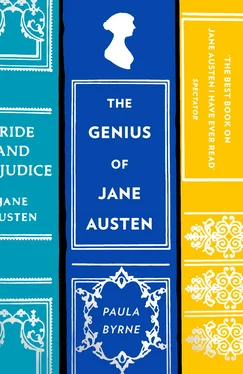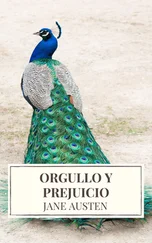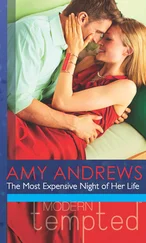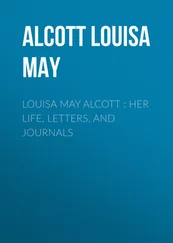Dora Jordan was unparalleled in comedy. 75She appealed to both the critics and the theatre-going public who flocked to see her. Coleridge, Byron, Hazlitt and Lamb were among her admirers. 76Hazlitt described her as ‘the child of nature, whose voice was a cordial to the heart, because it came from it … whose laugh was to drink nectar … who “talked far above singing” and whose singing was like the twang of Cupid’s bow’. 77Leigh Hunt also singled out her memorable laugh and melodious voice: ‘Mrs Jordan seems to speak with all her soul … her laughter is the happiest and most natural on the stage.’ 78
Jordan’s extensive range was unusual in an era during which actors tended to be restricted to specific kinds of role. She played genteel ladies, such as Lady Teazle and Widow Belmour, and romantic leads such as Lydia Languish and Kate Hardcastle. She was also famous for her ‘low’ roles, playing chambermaids, romps and hoydens to much acclaim. Miss Prue, Miss Hoyden, and Nell in The Devil to Pay were among her favourites. She was also famous for her ‘breeches roles’, playing the cross-dressed Hippolita, Harry Wildair, Rosalind, Viola, and Little Pickle in the farce The Spoilt Child . The theatre chronicler John Genest claimed that she ‘sported the best leg ever seen on the stage’. 79
Jordan’s performance as the innocent country girl in Garrick’s adaptation of William Wycherley’s highly risqué Restoration comedy The Country Wife combined the role of a hoyden with a ‘breeches part’. She played the Country Girl for fifteen seasons at Drury Lane from 1785 to 1800. In one of the most memorable scenes, Peggy takes a walk in St James’s Park, disguised as a young boy, as her jealous guardian is determined to protect her from other men. In a letter of 1799, Austen uses the notion of the ‘Country Girl’ to express doubts about the behaviour of an acquaintance, Earle Harwood, who had married a woman of obscure birth:
I cannot help thinking from your account of Mrs E. H. [Earle Harwood] that Earle’s vanity has tempted him to invent the account of her former way of Life, that his triumph in securing her might be greater; – I dare say she was nothing but an innocent Country Girl in fact. ( Letters , p. 48)
Austen’s instinctive and imaginative way of using stage characters as a point of reference in her letters, coupled with her habit of weaving in quotations from favourite plays, offers yet another striking example of the range and extent of her familiarity with the drama. She is viewing the world around her through the spectacles of theatre, and, simultanously, showing her awareness of the intricacies and nuances of the kinds of social stratification reflected in the drama. The invention of ‘Country Girl’ innocents out of low-born characters in order to reflect favourable light upon the inventor is precisely the kind of dubious behaviour that Austen fictionalises so adroitly in Emma .
The life of the low-born and illegitimate Dora Jordan echoed the theatre’s predilection for plays depicting social metamorphosis. From her humble, obscure origins, she had risen to be the mistress of a prince and a royal estate. 80Epilogues were written for Jordan with pointed reference to her private circumstances. In 1791, when the Duke was stepping up his courtship of Jordan, she played for her benefit an adaptation of Fletcher’s The Humorous Lieutenant called The Greek Slave: or The School for Cowards . 81Jordan played the part of a slave girl who is in love with a prince, and is eventually discovered to be of noble birth. The epilogue drew attention to her assumption of genteel roles, both on and off stage:
How Strange! methinks I hear a Critic say,
What, She the serious Heroine of the Play!
The Manager his want of Sense evinces
To pitch on Hoydens for the love of Princes!
To trick out Chambermaids in awkward pomp –
Horrid! to make a Princess of a Romp . 82
The epilogue also drew attention to the fact that, while she was acclaimed for her ‘low’ parts, her roles in polite comedy were often condemned. It seems that Jordan, even among her admirers, was considered to be a ‘natural’ at low parts. Even her adoring biographer Boaden described her low parts as ‘natural … the genuine workings of nature within her’. 83Leigh Hunt believed that Jordan was at her best in low comedy, and declared that she was ‘all deficient in the lady ’ and unable to bring off genteel roles because of her lack of ‘a certain graceful orderliness, an habitual subjection … of impulse of manner’, claiming, however, that ‘If Mrs Jordan were what she ought to be in the lady, we more than doubt whether she could be what she is in the boarding school-girl or the buxom woman’. 84
Hunt’s remarks betray a consciousness about the ease with which actresses could play the lady on stage and cross social boundaries off stage. Perhaps this was because so many former actresses married into aristocratic circles. Famously, one of Mrs Jordan’s co-stars, Elizabeth Farren, quit the stage to marry the Earl of Derby. 85Catherine Stephens married the Earl of Essex and Miss O’Neill retired early to become Lady Wrixon Beecher. Jordan’s rise from illegitimate child-actor to royal mistress, crossing almost every social barrier, added an extra comic dimension to her role as Nell in Charles Coffey’s farce The Devil to Pay .
In 1814 Jane Austen saw Jordan in this play, in what was perhaps her most famous role, that of a timid cobbler’s wife who is magically transformed into an aristocratic society mistress. 86Jordan played the part of the downtrodden wife who makes a better wife to Sir John, and a kinder mistress to her servants, than the irascible Lady Loverule. Lady Loverule’s metamorphosis into the cobbler’s wife eventually brings about her moral transformation. The rough treatment she experiences at the hands of the cobbler is partially responsible for the change in her attitude towards her exalted position:
There’s nought but the devil
And this good strap
Could ever tame a scold. 87
The comedy had long amused the public, who enjoyed seeing Jordan’s metamorphosis from rags into riches, just as she herself had been transformed, seemingly, by her liaison with the Duke of Clarence. Jordan was dubbed ‘Nell of Clarence’ by Horace Walpole, who intended a reference to her famous predecessor as royal theatrical mistress, Nell Gwynne.
By the time that Jane Austen saw The Devil to Pay in 1814, however, Jordan was separated from the duke and had returned to the stage. 88Austen declared herself ‘highly amused’ with the farce. She was in good company – Hazlitt described Jordan’s Nell as ‘heavenly’:
Her Nell … was right royal … Miss Kelly is a dexterous knowing chambermaid: Mrs Jordan had nothing dexterous or knowing about her. She was Cleopatra turned into an oyster-wench, without knowing that she was Cleopatra, or caring that she was an oyster-wench. An oyster-wench, such as she was, would have been equal to a Cleopatra; and an Antony would not have deserted her for the empire of the world! 89
The Devil to Pay , the play that was so closely associated with Dora Jordan, exemplifies the drama’s obsession with the concept of social mobility, and its endless play on rank and manners. The metamorphosis of a timid country girl and a termagant wife and society mistress highlighted the same sort of class tensions initiated by the unprecedented success of Richardson’s Pamela . Goldsmith’s She Stoops to Conquer was another favourite eighteenth-century comedy that examined uneasy social stratifications by a series of ironic reversals.
It is striking, but perhaps not surprising, that Austen favoured comedies where social roles were turned topsy-turvy, such as Coffey’s The Devil to Pay , Townley’s High Life Below Stairs and Colman’s The Heir at Law . 90Such comedies were popular with a wide and varied audience. Theatre historians have shown how the need for public theatres to appeal to a socially diverse audience of box, pit and gallery led to a mixed programme of entertainment. 91The opposition between ‘high’ and ‘low’ became a perennial theme in eighteenth-century comedy, depicting the dramatic situations and comic scenes that arise when a person crosses the boundaries from low life to high, or vice-versa. The device of bringing together contrasting types, whereby different styles of action and language are attached to different classes and ironically juxtaposed, allowed the writer to exploit the comic potential of ‘high’ and ‘low’ life in Georgian England, and please the upper galleries as well as the pit.
Читать дальше












